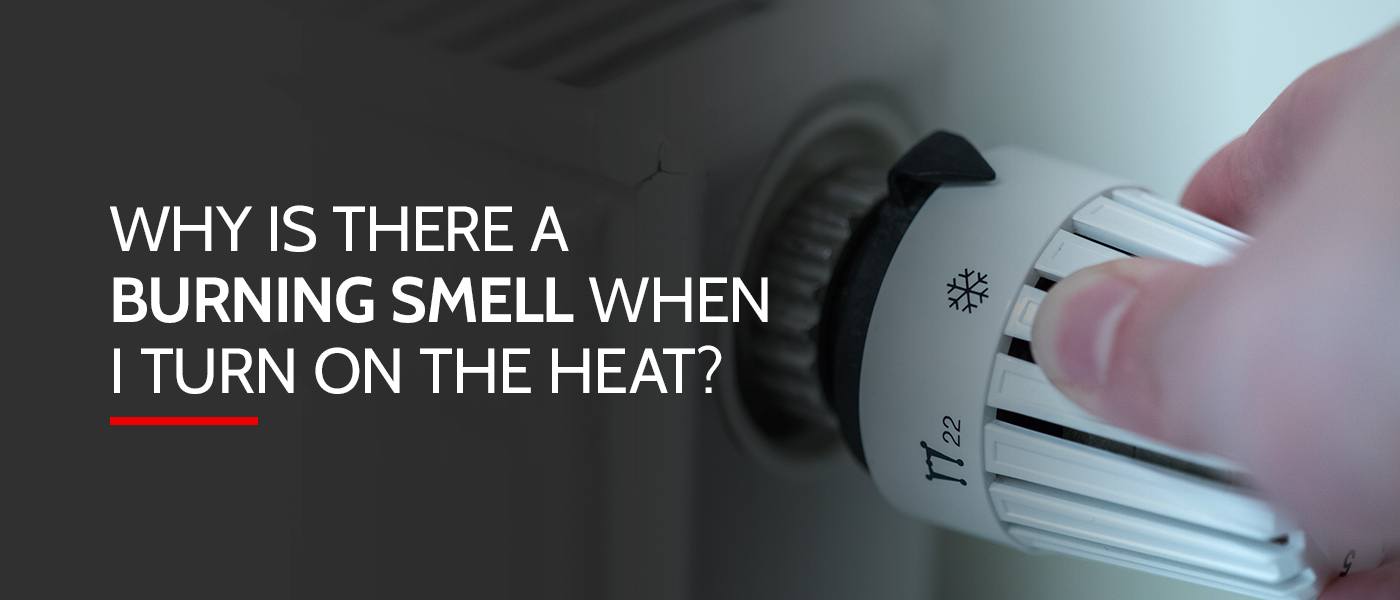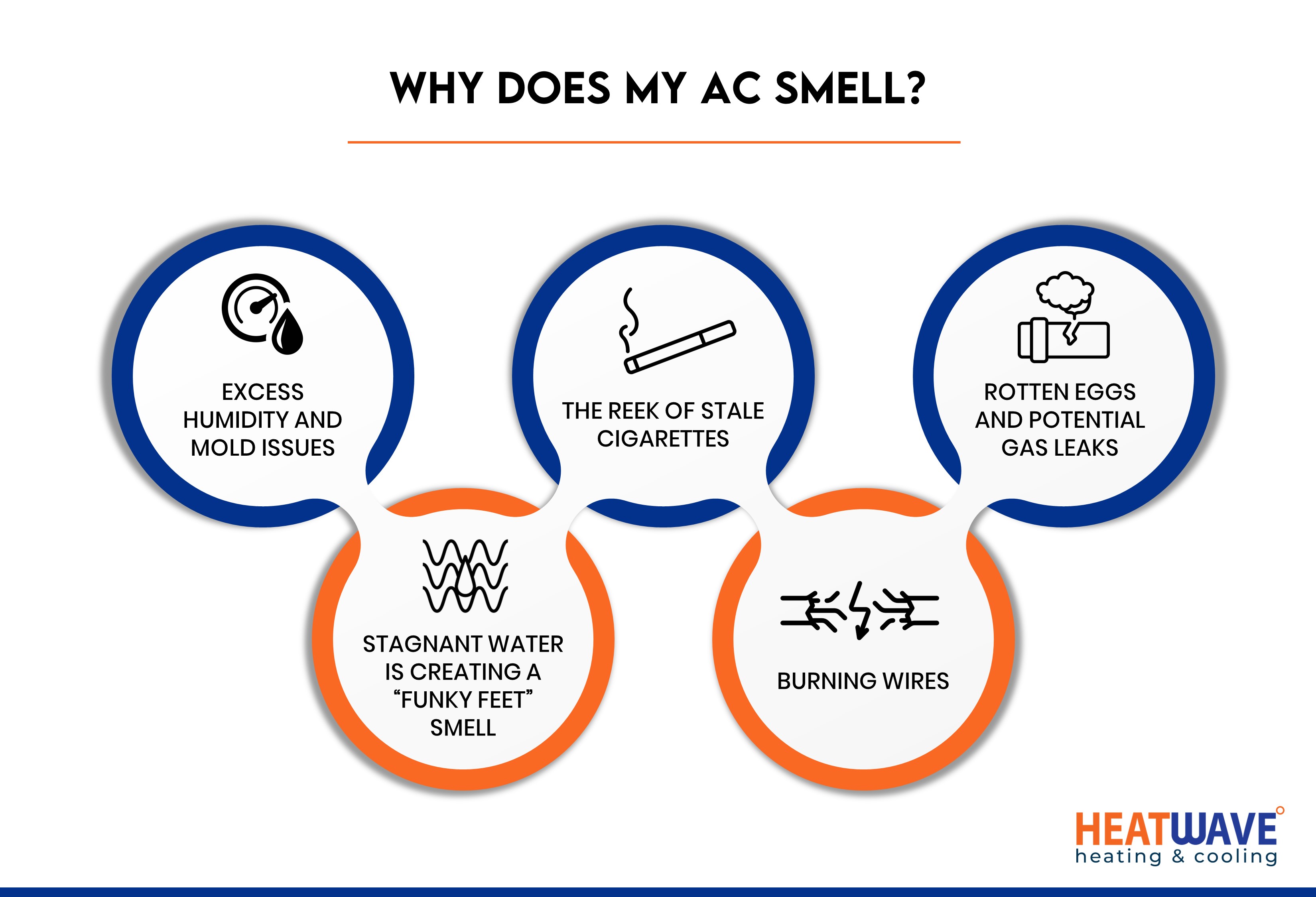Why Does My Heat Smell Like It's Burning

A burning smell emanating from your heating system is never a pleasant experience. It can range from a minor inconvenience to a sign of a serious safety hazard. Understanding the potential causes behind this odor is crucial for homeowners, HVAC technicians, and facility managers alike. This article will delve into the common culprits, enabling you to diagnose the problem effectively and take appropriate action to restore safe and efficient heating.
Common Causes of Burning Smells in Heating Systems
Several factors can contribute to a burning smell coming from your furnace, heat pump, or other heating system. Here's a breakdown of the most frequent offenders:
Dust and Debris Accumulation: The Most Frequent Culprit
This is the most common cause, especially at the beginning of the heating season. Throughout the summer, dust, dirt, and other debris accumulate on the heating elements, inside the ductwork, and around the blower motor. When the heat is turned on for the first time, these particles burn off, producing a distinctive burning smell. Think of it like a self-cleaning oven – the initial burn-off creates a noticeable odor.
Example: A homeowner in a dusty rural area might experience this more intensely than someone in a clean, urban environment. The difference is simply the amount of accumulated dust.
Solution: In most cases, this smell will dissipate within a few hours or days of continuous operation. Opening windows to ventilate the area can help speed up the process. If the smell persists beyond a few days, it's time to investigate further. Professional cleaning of the ductwork might be necessary.
Electrical Issues: A Serious Concern
Burning smells can also indicate an electrical problem within the heating system. Overheated wires, failing motors, or short circuits can all produce a burning odor. These situations are potentially dangerous and require immediate attention.
Warning Signs: Look for flickering lights when the furnace is running, breakers tripping frequently, or visible signs of burning or melting on the unit itself. If you notice any of these signs, immediately turn off the heating system at the breaker and call a qualified HVAC technician.
Components to Check: HVAC technicians should inspect the wiring connections, capacitor health in motors, and the integrity of the control board. Loose connections are a common cause of overheating. Replacing a failing motor or control board is often necessary.
Overheated Components: Beyond Dust
Sometimes, a component within the system is overheating due to a malfunction, not just dust. This could be a failing blower motor, a restricted airflow problem causing the heat exchanger to overheat, or a faulty limit switch.
Example: A clogged air filter can restrict airflow, causing the furnace to work harder and overheat. This puts undue stress on the components and can lead to a burning smell.
Airflow Issues: Always ensure that air filters are clean and replaced regularly (typically every 1-3 months, depending on the filter type and air quality). Blocked vents can also restrict airflow, so ensure they are open and unobstructed.
Limit Switch: The limit switch is a safety device that shuts off the furnace if it gets too hot. A faulty limit switch might not be functioning correctly, allowing the furnace to overheat and produce a burning smell. A technician can test the limit switch and replace it if necessary.
Oil Leaks (Oil Furnaces): A Distinct Odor
If you have an oil furnace, a burning smell could indicate an oil leak. Leaking oil can drip onto hot surfaces, causing it to burn and produce a strong, acrid odor. This is both a fire hazard and an environmental concern.
Identifying an Oil Leak: Look for signs of oil around the furnace, particularly near the burner and oil lines. A strong, fuel-like smell is also a telltale sign. Contact a qualified HVAC technician immediately to address the leak and prevent further damage.
New Furnace Burn-In: A Temporary Phenomenon
When a new furnace is installed, it's common to experience a burning smell during the initial burn-in period. This is due to the oils and residues from the manufacturing process burning off. This smell should dissipate within the first few days of operation.
Distinguishing from Other Issues: The burn-in smell is usually less intense and more "chemical-like" than the smell of burning dust or electrical components. However, if you are unsure, it's always best to err on the side of caution and consult with an HVAC technician.
Troubleshooting Steps for Homeowners and Technicians
Here's a step-by-step guide to help you troubleshoot a burning smell from your heating system:
- Identify the Smell: Try to describe the smell as accurately as possible. Is it dusty, electrical, oily, or chemical? This will help narrow down the potential causes.
- Check the Air Filter: Ensure the air filter is clean and properly installed. Replace it if necessary. A dirty air filter is a common culprit.
- Inspect the Area: Look for any visible signs of burning, melting, or oil leaks around the heating system.
- Listen for Unusual Noises: Are there any strange noises coming from the furnace or blower motor? This could indicate a mechanical problem.
- Ventilate the Area: Open windows to improve ventilation and help dissipate the smell.
- Monitor the Smell: Does the smell dissipate after a few hours of operation? If not, it's likely a more serious issue.
When to Call a Professional
While some burning smells are harmless and temporary, others can indicate serious problems. It's crucial to know when to call a qualified HVAC technician.
Call a professional immediately if:
- You suspect an electrical problem.
- You smell burning oil.
- The burning smell is strong and persistent.
- You notice any signs of smoke or fire.
- You are unsure about the cause of the smell.
Preventative Maintenance: Avoiding Burning Smells
Regular maintenance is key to preventing burning smells and ensuring the safe and efficient operation of your heating system. Here are some essential maintenance tasks:
- Change Air Filters Regularly: As mentioned, this is crucial for maintaining airflow and preventing overheating.
- Schedule Annual Inspections: A qualified HVAC technician can inspect your system, identify potential problems, and perform necessary maintenance tasks.
- Clean Ductwork: Over time, dust and debris can accumulate in the ductwork, contributing to burning smells and reducing air quality. Consider having your ductwork professionally cleaned every few years.
- Lubricate Moving Parts: Blower motors and other moving parts require lubrication to prevent overheating and premature failure.
- Check for Gas Leaks: If you have a gas furnace, have a technician check for gas leaks annually.
Cost Considerations
The cost of addressing a burning smell can vary depending on the cause and the required repairs. A simple air filter replacement is relatively inexpensive, while replacing a motor or control board can be more costly. Duct cleaning can also range in price depending on the size and complexity of the ductwork. Preventative maintenance is generally more cost-effective than dealing with major repairs down the line. A yearly check up might be between $100 and $300 depending on the scope of the service.
Efficiency Ratings and Lifespan
Maintaining your heating system not only prevents burning smells but also improves its efficiency and extends its lifespan. Regular maintenance ensures that the system operates at its optimal efficiency rating (AFUE for furnaces, HSPF for heat pumps), saving you money on energy bills. A well-maintained furnace can last 15-20 years, while a heat pump can last 10-15 years. Neglecting maintenance can significantly shorten the lifespan of your system and lead to costly repairs or replacements.
Conclusion
A burning smell from your heating system should never be ignored. While some causes are minor and easily resolved, others can be serious safety hazards. By understanding the common culprits, following the troubleshooting steps outlined in this article, and prioritizing preventative maintenance, you can ensure the safe, efficient, and long-lasting operation of your heating system. When in doubt, always consult with a qualified HVAC technician to diagnose and address any issues promptly.










